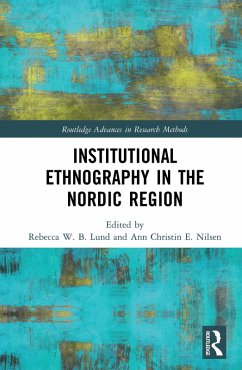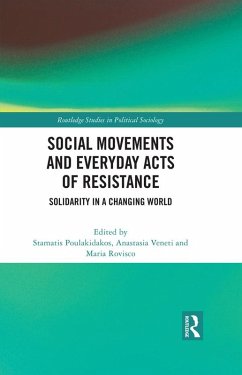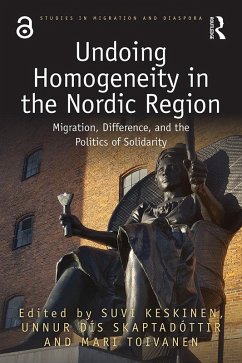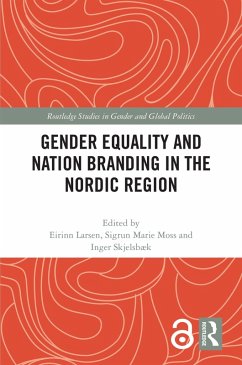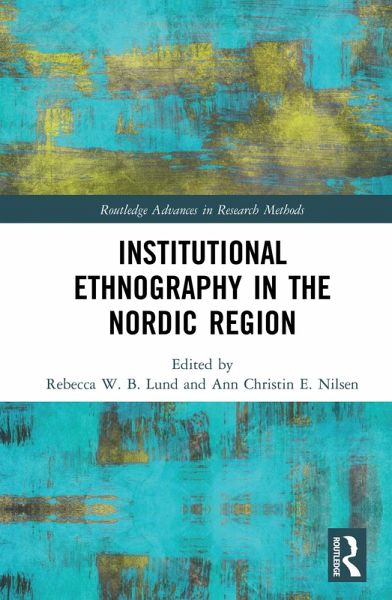
Institutional Ethnography in the Nordic Region (eBook, ePUB)
Versandkostenfrei!
Sofort per Download lieferbar
41,95 €
inkl. MwSt.
Weitere Ausgaben:

PAYBACK Punkte
21 °P sammeln!
Developed in response to the theoretically driven mainstream sociology, institutional ethnography starts from people's everyday experiences, and works from there to discover how the social is organized. Starting from experience is a central step in challenging taken-for-granted assumptions and relations of power, whilst responding critically to the neoliberal cost-benefit ideology that has come to permeate welfare institutions and the research sector. This book explicates the Nordic response to institutional ethnography, showing how it has been adapted and interpreted within the theoretical an...
Developed in response to the theoretically driven mainstream sociology, institutional ethnography starts from people's everyday experiences, and works from there to discover how the social is organized. Starting from experience is a central step in challenging taken-for-granted assumptions and relations of power, whilst responding critically to the neoliberal cost-benefit ideology that has come to permeate welfare institutions and the research sector. This book explicates the Nordic response to institutional ethnography, showing how it has been adapted and interpreted within the theoretical and methodological landscape of social scientific research in the region, as well as the institutional particularities of the Nordic welfare state. Addressing the main topics of concern in the Nordic context, together with the way in which research is undertaken, the authors show how institutional ethnography is combined with different theories and methodologies in order to address particular problematics, as well as examining its standing in relation to contemporary research policy and university reforms. With both theoretical and empirical chapters, this book will appeal to scholars and students of sociology, professional studies and anthropology with interests in research methods and the Nordic region.
Dieser Download kann aus rechtlichen Gründen nur mit Rechnungsadresse in A, B, BG, CY, CZ, D, DK, EW, E, FIN, F, GR, HR, H, IRL, I, LT, L, LR, M, NL, PL, P, R, S, SLO, SK ausgeliefert werden.




